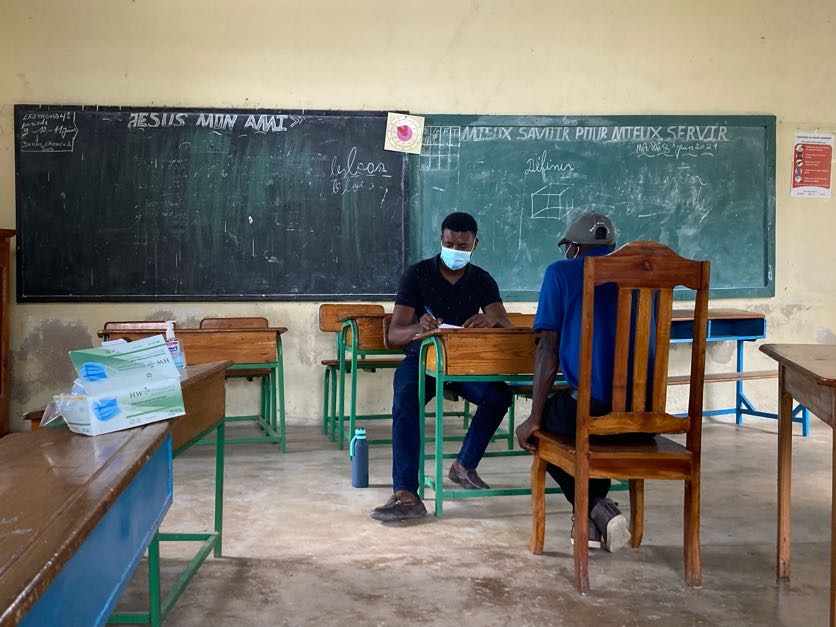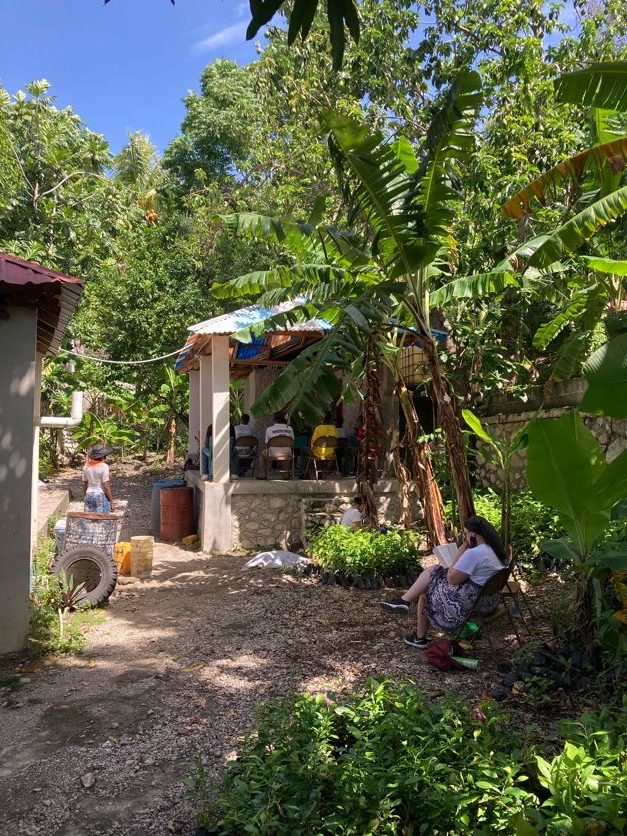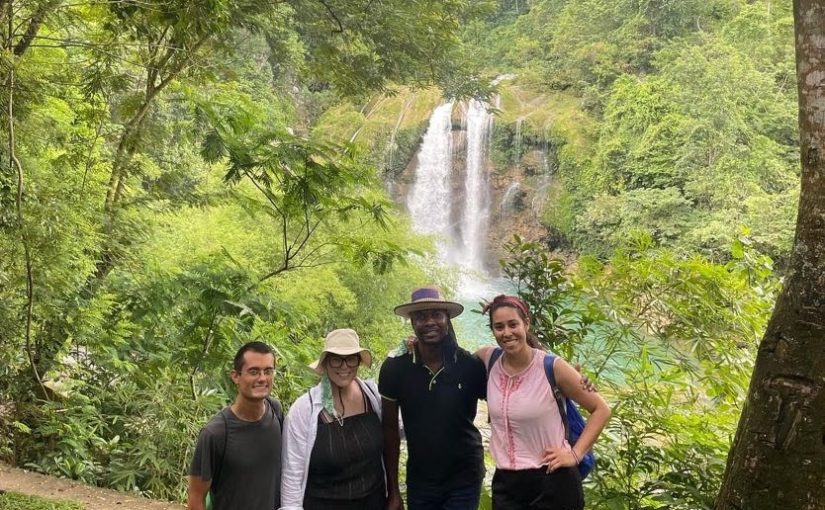by: Abigail Ginzburg
It is hot, the breezes are few, and I am staring at my assigned tasks on our team checklist, realizing again that I have nothing left to do. I am with my Integration Lab (i-Lab) team in Haiti, studying people’s relationship to chronic poverty. Of the four of us, only one is Haitian.
My Haitian teammate does the bulk of the work. During community visits, he registers participants, co-facilitates focus group discussions and participatory activities, conducts key informant interviews, and takes notes for all activities. Back at our hotel, he reads the notes for the rest of us to transcribe, explains their context, and highlights particular insights. Beyond activities directly related to research, he also handles local logistics, coordinating with the hotel, facilitators, recruiters, drivers, and the partner organization. He organizes our fun excursions. And, of course, he constantly translates for us blans (foreigners).

My non-Haitian teammates handle more of the support work for community visits: prepping the materials before we leave, recording the group discussions and participatory activities, handing out refreshments, and taking photos. During data processing, we take turns transcribing and coding notes and recording insights. One teammate confirms the schedules for our next community visits and another repacks our supplies.
My unique contributions are as follows: I track and distribute all the project money and I upload photos and documents into Google Drive.
Without our Haitian teammate, this project would be impossible. Conversely, my presence is optional. One teammate already helped track the money in the first two weeks; the rest is exceedingly simple.
So, why be here? What use am I? My anxiety is perpetual.
My teammates’ answers:
- You are good at financial tracking.
- Having a fourth person makes data processing easier.
- Simply witnessing the participants’ testimonies, their living conditions, and life in Haiti will make you a better practitioner.
- Everyone contributes what they can: your skills will be most useful during the spring and fall semesters, so it is okay to be doing less in the summer.
These answers are all true and kind. The first two show that my presence makes my team’s lives easier but that the project could still continue without me. My anxiety remains.
The third answer tries to shift the focus onto individual short-term benefits and long-term communal ones. Alone, this is unsatisfying. I am grateful to have experiences that will make me a better practitioner. However, I am uncomfortable with benefiting more from my time in Haiti than Haitians do. The argument that they may benefit later from the results of my team’s research circles back to the question of whether my presence is necessary. If the benefits could be realized without me, why be here? My anxiety remains.
So we come to the fourth answer and the true crux of the issue. What does it mean to be a valuable team member? For me, it means sharing skills that nobody else can (or at least to be particularly good at something), doing my fair share of work. Broadly, I fulfill these requirements. I have data analysis skills that my teammates do not. I am particularly good with finances. I contributed a lot to the project in the spring and will do so again in the fall. And yet it is difficult to shake the feeling that because my presence is not crucial in this very moment, it is unjustifiable. Learning to be okay with not being a top contributor, learning to believe others when they say I am doing enough (even if the workload is skewed!), has been the most difficult part of the summer.
I face a larger question—one that cannot be fully addressed in this post—about the distribution of benefit from field experiences. Field experience is valuable; the indirect benefits to communities hopefully do exist. Still, students gain more than the communities do, particularly in the short term: this experience leads to a master’s degree, which gives us power, access, and agency in the global development system. Meanwhile, the situation for our Haitian participants is unchanged. That balance is discomfiting, especially in a global affairs program, especially one dedicated to integral human development.
I will never be fully comfortable with gaining more from an experience than I contribute to it, and I do not want to be. That inner sense of fairness helps me be sensitive to potentially toxic dynamics on a personal, group, and communal level. But I do think finding value in my presence outside of how much I contribute at any given moment is just as important. My anxiety recedes.

Author’s note: My team and I were evacuated due to political instability shortly after this blog post was written. We are all safe and well. In whatever way suits you, please send Haiti your prayers, well wishes, and moral support as the country navigates their current crisis.

